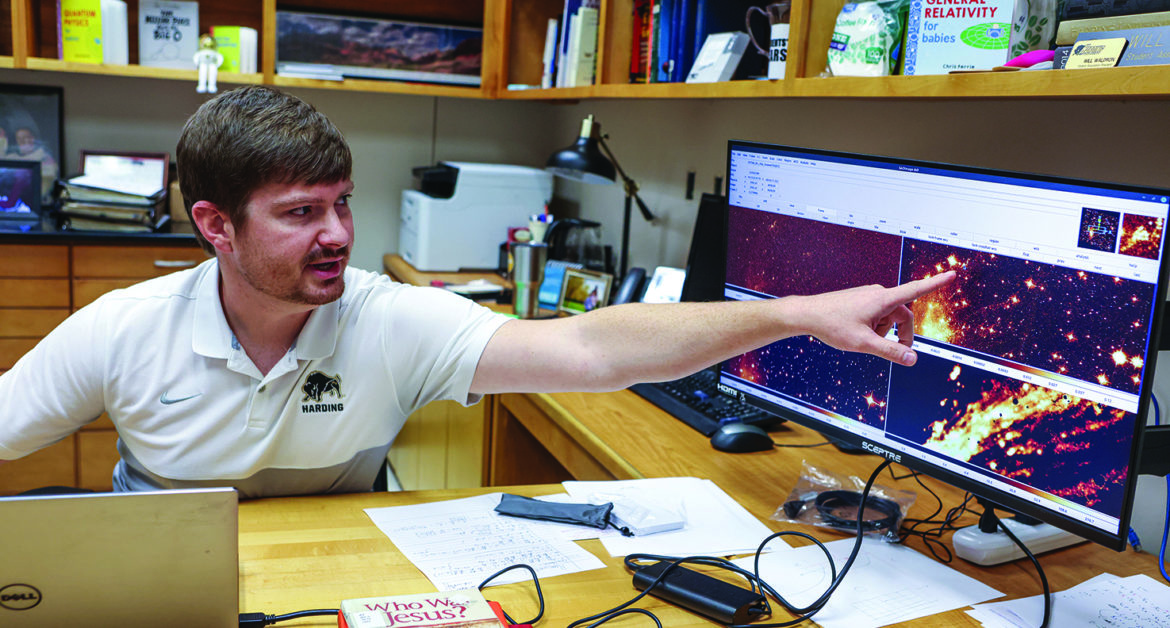Written by Emma Jones // Photo by Madison Meyer
Dr. Will Waldron, an instructor of engineering and physics, recently defended his doctoral dissertation, which regarded information he researched using broadband data from the Hubble telescope.
In his dissertation, which was titled “A pipeline to study Hubble Space Telescope ACS/WFC3 data and examples of its applications,” Waldron researched star formation properties on stellar clusters in other galaxies, leading to the ability to constrain stellar mass, age and star formation rate within tails of other galaxies. Waldron said in simpler terms, his thesis focused on studying how galaxies evolve.
“What I told people is I just got to look at pretty images from Hubble over the course of my graduate academic career, which is a pretty sweet deal,” Waldron said.
Waldron earned his doctorate from the University of Alabama in Huntsville, where he started his research using Hubble data while he was a graduate student. At Harding, he teaches several physics courses and the astronomy course.
“Will has worked diligently the last few years to make substantive contributions to his field while also teaching full time,” Dr. Steven Barber, associate professor of physics, said. “I am excited for the opportunities Harding physics students will have to join Dr. Waldron in future research, especially as many of them express an interest in astrophysics.”
Junior Callie Williams, a medical laboratory sciences major, took both semesters of general physics with Waldron. She said Waldron is a professor who teaches his lessons well, but also has a lot of fun doing it.
“He always referenced space in class, and made lots of Star Wars jokes,” Williams said. “He taught well, but he also created community well.”
Waldron said though most children go through a phase of being fascinated with space, he never grew out of his, and that is what inspired him to go into astrophysics.
“I fell in love with the sky when I was about five years old, and just never left that phase,” Waldron said. “I knew I wanted to study all things space so when that came to choosing a degree at Harding, that led me to astrophysics. My love for space led to me eventually studying it and doing it for a career.”
As for future research, Waldron said he had a few ideas for potential projects, but he plans to take a short break from research to rest after earning his doctorate.
